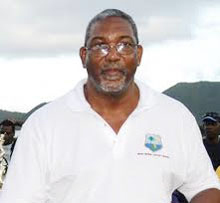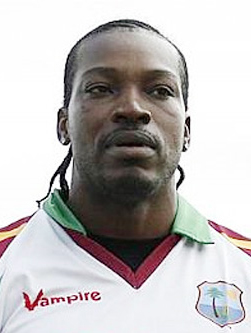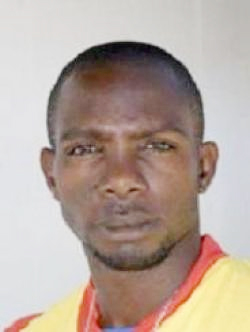With West Indies cricket in constant disarray, it is seldom short of entries. This week’s deals with the appalling state of batting.
It is a topic no doubt previously recorded but it has been further emphasized in first two rounds of the current first-class season. The scores of 39, 113 and 167 and the farce of CCC’s day-and-a-half finish and victory over the Leeward Islands yesterday, as well as the tumbling wickets at Windsor Park, were further evidence of the problem.
The Leewards’ first innings all-out 39 at the Three Ws Oval, ironically named in memory of a trio of the finest batsmen the game has known, was completed before lunch on the opening day in 22.2 overs, the fifth lowest in the 147 years of regional first-class cricket. More faltering batting followed in the CCC’s reply of 167 and the Leewards’ second innings 113. While those wickets were tumbling, so were Guyana’s in Roseau, all out 137 against the Windward Islands and Barbados all out 157 against Jamaica at Sabina Park.

These were no aberrations but rather a general and increasing trend.
In the previous match, the Leewards were bowled out for 98 and 102 by the Windwards at Windsor Park and the CCC were routed for 111 and 114 by Trinidad and Tobago. In the 31 matches in the 2011 season, there were four two-figure totals, 16 under 150 and 30 below 200.
The consequences of such statistics are obvious.
For one, they leave the selectors uncertain about how much value to place on regional returns. Unaccustomed to working for their wickets, bowlers are likely to be at a loss of how to respond when they graduate to international level and are confronted by well set, quality, run-hungry batsmen. It is improbable that batsmen who can’t last for more than a couple of hours in the regional game can do so at the highest level.
There are players with the talent and the common sense who have moved seamlessly into international cricket (for instance, Darren Bravo, Kirk Edwards, Davendra Bishoo, Andre Russell of the present lot) but the reserves are in short supply, unlike those elsewhere.

With the cream of the crop absent from the early part of the domestic first-class tournament because they are with franchises in the Bangladesh Premier League (BPL), and are likely to be in future, standards are bound to further deteriorate.
The Leewards’ decline is especially poignant. Gregory Shillingford, under pressure to hold on to the presidency and, as such, his directorship on the WICB, argued last week that the failure to stage the annual inter-island three-day tournament as preparation for the regional season was down to a lack of finance.
These were the matches in which the host of Leewards’ top players of the 1970s through to the 1990s first made their mark – the incomparable Viv Richards, Andy Roberts, Richie Richardson, Curtly Ambrose, Ridley Jacobs for Antigua, Elquemedo Willett, Derick Parry, Stuart Williams, Runako Morton for Nevis, Jim Allen and Lionel Baker for Montserrat, Omari Banks for Anguilla). Now, according to Shillingford, they had to be abandoned because they were too expensive to stage. And, given their declining appeal, they have lost sponsorship.
Theirs is a peculiar situation. Similarly the Windwards. Seven different islands comprise the Leewards, the Windwards four. Air travel, as anyone who has flown in the Caribbean knows, has become cripplingly expensive. So have hotel rates at the height of the tourist season.

These are issues that do not affect Barbados, Guyana, Jamaica and Trinidad and Tobago which don’t have to fly teams in and put them up for their trial matches.
Shillingford said he has sought help from the Organisation of East Caribbean States (OECS) in removing the relevant taxes and VAT. The Windwards have, no doubt, done the same. So far there has been so response. This is where the WICB needs to step in to assist with monetary support.
It is not that it would solve all the Leewards’ problems or ensure they start producing potential West Indies players again. It would be a help.
There are wider issues other than financial to be considered in the Leewards. Allegations about voting in the AGM have to be answered as do those surrounding team unity. It was first raised by Anthony Martin, an Antiguan, when he opted out of the captaincy after the Caribbean T20, and is evident in their cricket in their two matches to date.
On the basis that any chain is as strong as it weakest link, it is little wonder that West Indies cricket, beset by other, deeper, problems, is so weak at present.
Just a telling footnote to the week’s diary entry.
It was during Chris Gayle’s latest barrage in his 44-ball, 10-sixes, unbeaten 101 to launch the BPL on Friday. Bangladesh commentator Shamin Chowdhury echoed the widely shared sentiment: “What a pity this man isn’t playing Test cricket for the West Indies.”
Peter Trego, the Somerset player who was the opposition captain, said at the post-match presentation: “This is why every team in the world wants to him to play for them.” He omitted to mention “except one”.





